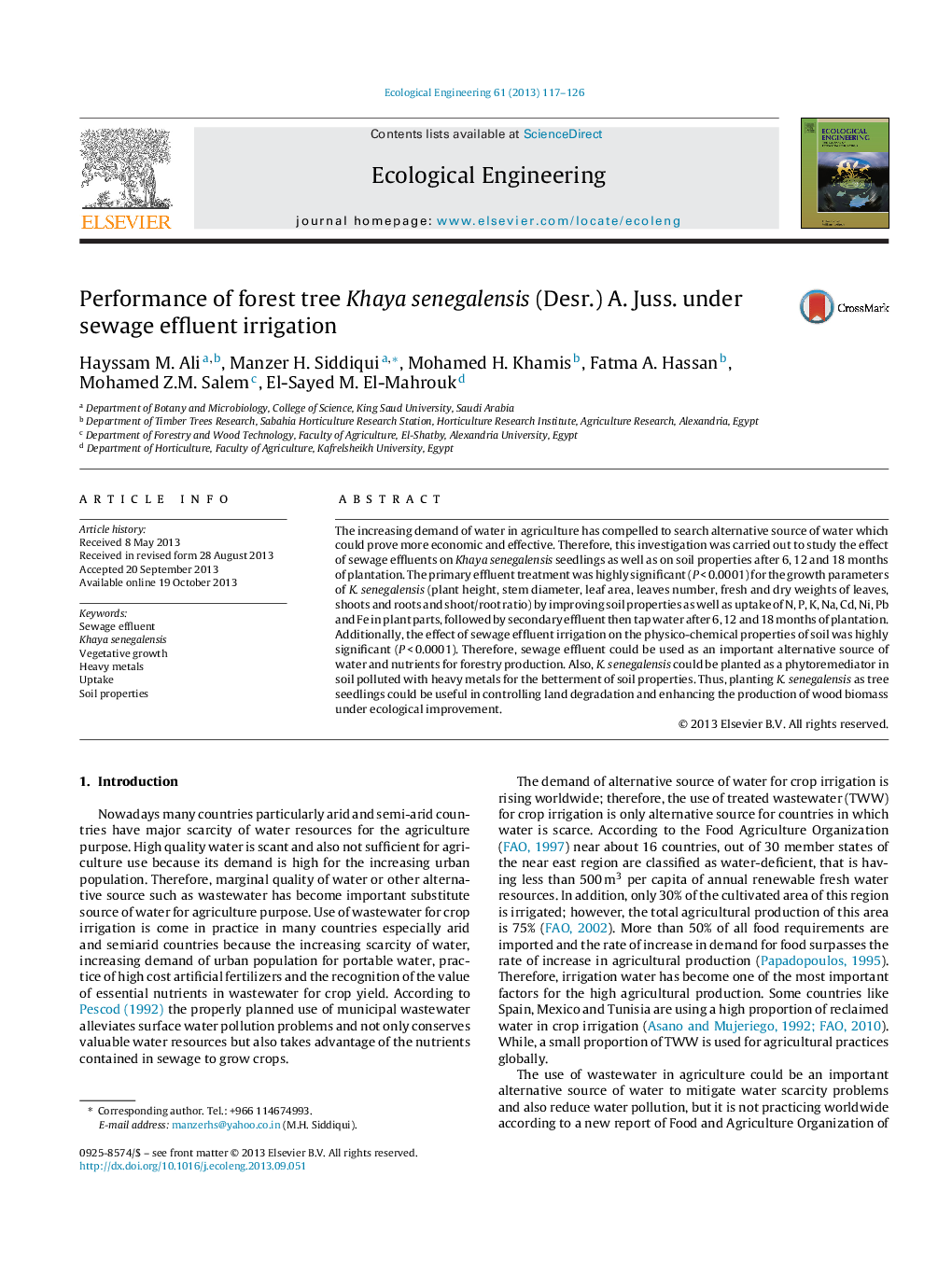| Article ID | Journal | Published Year | Pages | File Type |
|---|---|---|---|---|
| 4389470 | Ecological Engineering | 2013 | 10 Pages |
The increasing demand of water in agriculture has compelled to search alternative source of water which could prove more economic and effective. Therefore, this investigation was carried out to study the effect of sewage effluents on Khaya senegalensis seedlings as well as on soil properties after 6, 12 and 18 months of plantation. The primary effluent treatment was highly significant (P < 0.0001) for the growth parameters of K. senegalensis (plant height, stem diameter, leaf area, leaves number, fresh and dry weights of leaves, shoots and roots and shoot/root ratio) by improving soil properties as well as uptake of N, P, K, Na, Cd, Ni, Pb and Fe in plant parts, followed by secondary effluent then tap water after 6, 12 and 18 months of plantation. Additionally, the effect of sewage effluent irrigation on the physico-chemical properties of soil was highly significant (P < 0.0001). Therefore, sewage effluent could be used as an important alternative source of water and nutrients for forestry production. Also, K. senegalensis could be planted as a phytoremediator in soil polluted with heavy metals for the betterment of soil properties. Thus, planting K. senegalensis as tree seedlings could be useful in controlling land degradation and enhancing the production of wood biomass under ecological improvement.
